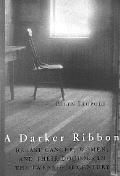Home ownership gets more like space travel all the time: we all hope to do it someday. What’s a first-time buyer of moderate means to do in a market where a 2-bedroom bungalow costs $250,000?
“Rob a bank,” Windermere agent Serena Heslop suggests. She’s joking, of course, sharing her clients’ sense of the absurdity of $2,500 mortgage payments. But she agrees that it’s a tough market out there. “Even Columbia City, where I live, has gotten more expensive,” she says, adding that other South End neighborhoods may be better places to look.
Last year, friends of mine bought a snug Rainier Valley house for only $68,600 and instantly became an urban legend. Of course, it wasn’t quite that simple: the house had been auctioned “as is” by the federal Housing and Urban Development program, and it needed major repairs, plumbing, rewiring, and a new roof. Not counting labor, my friends spent another $6,000 to make the house habitable. For would-be homeowners with more skills than money, HUD occasionally has bargains. HUD’s Web site, updated frequently, has houses you can bid on (www.hud.gov). HUD houses are sold at market value, so the best bargains are ones that need some repair.
When I was a child in the idealistic early ’70s and money was fleeing to the suburbs, there was a seemingly limitless supply of cheap, gorgeous old houses in the city. Poets, artists, and communitarians lived in mansions, and public agencies auctioned houses away for a song. Today, it’s great that more people want to live in the city, but it seems depressingly appropriate that most city-auctioned properties were seized for drug or other criminal offenses. Even if it weren’t morally repugnant to benefit from unreasonable drug laws, these houses aren’t sold cheap. According to John Kennedy of the city’s Real Estate Services Section, deals are rare at government auctions these days. Serena Heslop also points out that auctions often require cash, ruling out those of us who would need a loan.
Loans. There’s another subject, baffling enough to terrify renters into staying put. First-time home buyers can go to the Community Home Ownership Center (800-317-2918) for help. A nonprofit organization, funded primarily by mortgage bankers and state and federal grants, the center guides first-time home buyers through the maze of lending institutions and assistance programs offered by government and nonprofit organizations.
The center can hook interested buyers up with HomeSight (723-4355), a nonprofit development corporation that builds affordable housing in targeted King and Snohomish County neighborhoods. HomeSight homes don’t appear in real estate listings. Prices start around $130,000. Those who qualify can also get down-payment assistance from funds administered by HomeSight. HomeSight has built 165 homes so far and claims a default rate of zero percent. According to HomeSight’s Nora Liu, this success is partly attributable to the program’s First-Time Home Buyer Education class, a 14-hour curriculum offered free to anyone who’s interested.
A 1998 report by the Washington Research Council found that only 13 percent of all housing sold in King County was affordable to households below median income. What’s the city doing about it? Dorothy Lengyel, director of HomeSight, says the city’s commitment to home ownership programs has improved. “This administration has embraced home ownership and is looking for a lot of little solutions,” says Lengyel. City levy funds have provided $1.3 million in down-payment loans since 1998, but HomeSight (which administers the loans) has already allocated all its 1999 money, which means you can’t get city down-payment assistance until sometime next year. For Lengyel, the big problem the city can’t easily solve is the rapid rise in construction and land costs. “It’s getting harder and harder to produce an affordable [home],” she says, adding that construction costs in King County have risen over 30 percent in the past year.
Buying your own house isn’t the only way to secure long-term affordable housing. The Northwest Intentional Communities Association (www.info-team.com/nonprofit/nica) is a clearinghouse for all kinds of alternative living communities, land trusts, co-housing cooperatives, and so forth. You can check the Northwest Cohousing Web site at www.the-foundry.org/cohousing.





